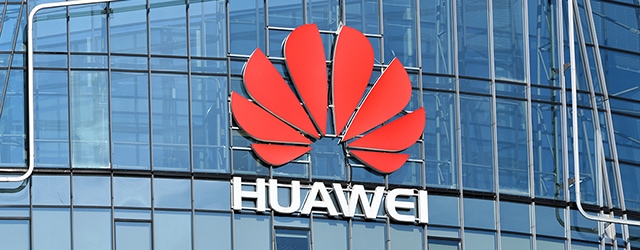US efforts to stymie Huawei are creating opportunities for the company's rivals in Asia and Europe.

Billions of consumers hit by Chinese mobile firm Huawei’s inclusion on a US trade blacklist are the latest victims in a “tech Cold War” hitting corporates in both countries. Speaking at a press conference on Wednesday (May 29), Song Liuping, Huawei’s Chief Compliance Officer, said the decision by the US Commerce Department to add Huawei and its affiliates to anentity listcould harm 3 billion customers using Huawei products in 170 countries.
The list includes companies barred from doing business with US companies for reasons of US national security. The inclusion means Huawei users will no longer have access to updates for Alphabet’s Android operating system. New Huawei phones will also lose access to some Google apps. The ban also limits the company’s access to technology from chipmakers such as Intel, Qualcomm and Broadcom.
The move sees the US-China trade war over tariffs evolve into a tech arms race,fuelled by US government fears over China’s growing surveillance technology and potential 5G network dominance. Gary Hufbauer, an economist and non-resident senior fellow at the Peterson Institute for International Economics, argues that theCold War analogy is accurate and predicts that things will get worse before they get better.
“[Director of trade and manufacturing policy, Peter] Navarro and [former White House chief strategist Steve] Bannon have convinced [US president Donald] Trump that China poses an ‘existential threat’ if it develops a lead in several hi-tech industries, such as 5G, AI, quantum computing and others,” Hufbauer tells Global Finance magazine. “So the time is now to cut off Chinese tech at the knees.I think the diagnosis and cure are both nonsense, but a great many Americans broadly agree, making the tech war popular.”
However, while the intention is to hobble China’s tech dominance, some US corporates are likely to be collateral damage. For his part, Huawei’s Liuping asserts that the government’s policy will “directly harm more than 1,200 US companies.”While Huawei has an interest in exaggerating this number, the potential negative impact for US tech companies cannot be ignored.
The biggest losers will be components makers. In the short term, Huawei’s suppliers have already seen their shares slide. In the long term, Huawei’s inability to do business with US firms could slow the development of 5G technology. This is bad news for American component makers who had planned for a major surge in 5G adoption in 2019.
On the other hand, tech companies in Asia and Europe could benefit. Huawei’s biggest Asian rival, South Korea’s Samsung, is already poised to take the lead in 5G, with its flagship phone, the Galaxy S10, slated to be released later this year. Also, according to Reuters, Nokia chief executive Rajeev Suri told shareholders in a meeting earlier this month that the company spied a “long term opportunity” in the regulatory issues Huawei is facing.
For his part, Hufbauer believes China will be the hardest hitover the next two to four years as a result of the US-China trade and tech war, but the country will rebound: “Unless the US dramatically ramps up its own public and private spending on tech R&D, the US stands to be hit hard over the next decade. If US spending ramps up, then I suppose the US military-industrial/technology complex will benefit.”



